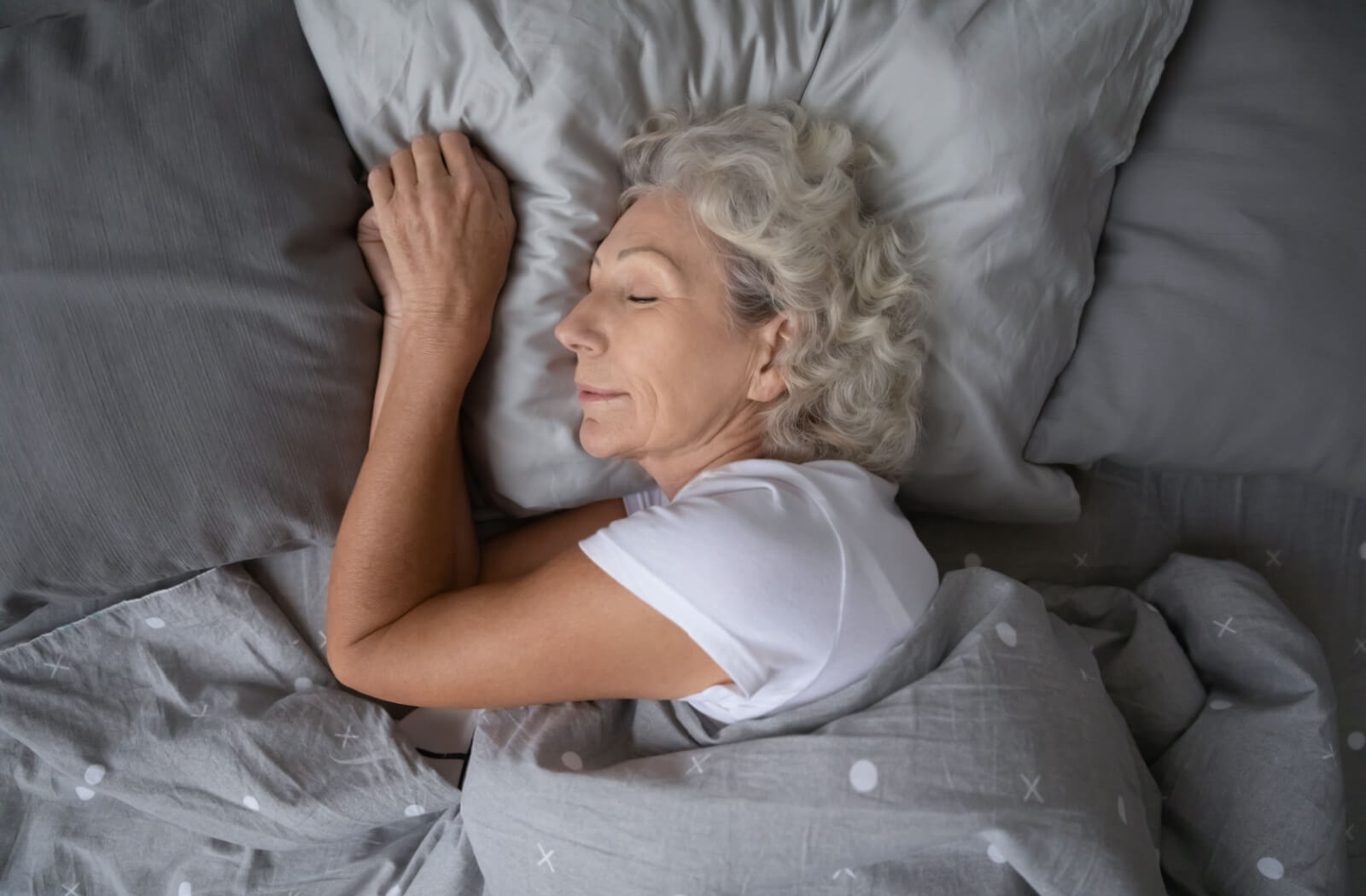Sleep is one of the most important parts of a healthy life. However, sometimes things change over the years—and sleep patterns are no exception. Irregular sleep patterns aren’t a small problem, and they can quickly lead to all kinds of long-term problems. But many older adults find themselves sleeping more and more, so what’s causing this unusual problem?
Changes in sleep habits are a normal part of living longer. However, in some cases, they could also suggest underlying problems. It could be a medical condition, a result of medication, or even the way a person spends their days. Sleep is a complex topic, so it’s important to take a wide-angle approach to helping a loved one build healthier sleep habits.
Time’s Effect on Sleep Patterns
Living longer naturally impacts how the body cycles through sleep. This often results in lighter and less restorative rest. This is one of the main reasons older adults may sleep more than they used to.
Shifts in Sleep Cycles as We Live Longer
Living longer often causes unique problems, such as:
- Fragmented sleep cycles that lead to waking up during the night
- Reduced production of melatonin, making it harder to fall asleep
- Circadian rhythm shifts, leading to earlier bedtimes and wake-up times
These adjustments in sleep cycles are natural, but they can still impact overall energy levels and quality of life.
Health Conditions & Their Role in Sleep Changes
A person’s overall health is a significant factor when it comes to sleep habits. Various medical conditions can interfere with restful sleep or cause excessive drowsiness during the day.
Chronic Illnesses Affecting Sleep
Physical health issues can also affect sleep quality in older adults. They’re also easy to overlook when trying to change sleep patterns.
Some common culprits include:
- Arthritis
- Diabetes
- Heart disease
- Chronic respiratory problems
If you suspect your loved one is living with one of these conditions, encourage them to visit a healthcare professional for a proper diagnosis.
Neurological Disorders & Sleep Issues
The brain is complex. Over time, certain neurological conditions can disrupt the brain’s ability to regulate sleep cycles.
Some neurological disorders known to affect sleep include:
- Alzheimer’s Disease: This progressive neurodegenerative disorder not only impairs memory and cognitive function but also disrupts the sleep-wake cycle. People living with Alzheimer’s may experience insomnia or excessive daytime sleepiness, which can further complicate their condition.
- Parkinson’s Disease: Characterized by movement disorders, Parkinson’s can affect sleep in various ways, including frequent awakenings, restless leg syndrome, and even REM sleep behavior disorder, where people act out their dreams. These sleep disturbances can exacerbate the motor symptoms of the disease.
- Multiple Sclerosis: An autoimmune disorder that impacts the central nervous system. Fatigue is a common symptom, and many people with multiple sclerosis report difficulties with both falling asleep and staying asleep, as well as experiencing disrupted sleep patterns.
- Epilepsy: This neurological condition is marked by recurrent seizures, which can have a profound effect on sleep. Many people with epilepsy experience sleep disorders, including insomnia and sleep apnea, and the lack of restorative sleep can increase the frequency of seizures.
- Stroke: A stroke can lead to various cognitive and physical impairments, including difficulties in sleep regulation. Survivors may struggle with insomnia, excessive sleepiness, or other sleep-related issues, contributing to challenges in rehabilitation and recovery.
Practical Steps for Better Sleep in Seniors
Retirement brings newfound freedom. However, it also shifts a person’s daily routines. These changes can impact your loved one’s life—particularly in terms of sleep. Small, consistent changes are the key to improving sleep patterns and quality of life.
Set a Consistent Sleep Routine
Maintaining consistent sleep and wake times helps regulate the body’s internal clock. Over time, this consistency makes falling asleep and waking up feel more natural. This is the first and easiest step toward building healthier sleep patterns.

Optimize the Sleeping Environment
Creating a sleep-friendly environment can improve the quality of rest.
Here are some general tips:
- Ensure the bedroom is quiet and dark, with minimal interruptions.
- Invest in a plush but supportive mattress and comfortable pillows.
- Keep the room cool to prevent overheating during sleep.
- Remove electronic devices or limit screen time before bed.
These steps make it much easier to achieve a good night’s rest.
Limit Napping During the Day
While naps can be beneficial, they should be limited to 20–30 minutes to avoid interfering with nighttime sleep. Whenever possible, schedule naps earlier in the day rather than late in the afternoon to support a better sleep schedule.
Encourage Physical Movement
Moderate exercise can significantly improve sleep quality for older adults. Daily walks, light stretching, or low-impact exercises like swimming help maintain energy balance and regulate sleep patterns.
However, vigorous exercise should be avoided close to bedtime, as it can make falling asleep more difficult. Instead, focus on small, gentle movements to wind down for the day.
Focus on Diet & Hydration
Eating light meals in the evening and avoiding caffeine and alcohol can help you get better rest. Staying hydrated during the day is essential, but older adults should reduce fluid intake in the evening to minimize nighttime disruptions.
Healthier Nights Await at Juniper Village at Aurora
At Juniper Village at Aurora, we know that optimal rest is a key part of overall wellness. Our personalized care plans are designed to support older adults based on their unique sleep needs, health conditions, and lifestyles.
We’re proud to work hard every day to help community members live healthier, more active lives. Here, we help create routines that encourage restful nights and energized days. And we’re waiting to welcome you with open arms. Schedule a tour with us today!







